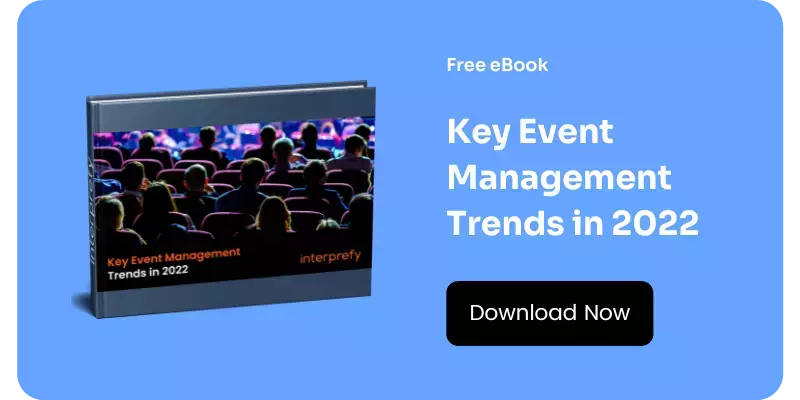When it comes to assessing the success of an event, a key variable to consider is audience engagement. Opinions, discussions, questions – these are all signs of audience engagement and, more importantly, proof your event is interesting.
However, whilst it’s easy to measure engagement at an on-site event (and subsequently improve your next one), what about for those you host online?
The fact is that we find ourselves in strange and troubling times. In the wake of local and international events being cancelled due to the COVID-19 pandemic, many scheduled events and conferences are taking place online. These events, though much more accessible, inclusive and diverse, are much harder to make engaging.
Much of this difficulty comes down to the medium: few online conferencing platforms provide the functions necessary for large-scale audience engagement. For smaller events and meetings, the ability to ‘raise a hand’ or ‘share a screen’ is invaluable and empowers users, but for large-scale online events with potentially thousands of people, how can attendees take part?
And it’s not just about delivering content. It’s about delivering content that your audience can engage with – and to do that you need to make it easy for them, whether that’s through your platform or before the online event. For many now working from home as a result of COVID-19, interacting via an event platform will be unfamiliar to them.
In this blog, we’re going to share several tips that will help you to improve audience engagement before and during your next online event.
1. Promote the event well ahead of time
One of the best ways to promote an online event (and therefore improve engagement before and during an event) is to share relevant content. This could be anything from posting short video recordings to starting a discussion forum for attendees only. By creating content and sharing it with your audience online, you give them an insider experience that has them excited to attend.
As well as creating content, it needs to be shared across the social media channels that your audience frequent.
Twitter and LinkedIn are the main channels for promotion but consider creating private groups for registrants where you can share brand-new content and footage. Make it clear on the event registration page that by registering, attendees get access to this gated content.
2. Choose speakers carefully and allow plenty of time for questions
The speaker panel and content provided are the most important factors in determining if someone attends an online event. In an increasingly international online events space, the panel chosen needs to be diverse (no one wants to hear the same opinion from five different people of the same background) and have clear expertise.
With this in mind, you must select speakers who can provide new insights and perspectives that will keep your audience on the edge of their office seats! This will also prompt them to ask more questions as it will be interesting information they haven’t heard previously or know less about.
Finally, leave some time for Q&A.
Online events aren’t lectures (as easy as it is for speakers to dominate when using online platforms) but educational seminars or discussions. By allowing the audience plenty of time to ask questions, they feel included and therefore engaged by the speaker(s). Also, questions help to shed further light on the topics discussed by the speakers; it may be that they didn’t have enough time to cover every aspect of a topic; audience questions can help bring out the answers.
3. Choose the right communication technology
Our survey highlighted to us that a key part of audience engagement is the ability to communicate with other attendees and speakers before and during an online event.
Indeed, according to our Event Industry Trends 2020 survey (consisting 106 respondents, all of whom have experience managing events), 78% agreed that event attendees want new ways of interacting with each other and with speakers.
With advances in event technology and communication platforms, it’s easier than ever for you (and your speakers) to interact with your audience in real time. Most online conferencing tools have a ‘chat’ function – use this to collect and curate audience questions. This approach gives speakers time to read and think about their answers to questions and involves the audience.
You can also use communication platforms to collect feedback from your audience to gauge how well the event is going in real time. This information can then be used to make changes to how the event is delivered – maybe the audience wants the speaker to stay longer on specific slides or to share the slides after the online event.
Lastly, having this technology in place enables you to understand how well you are able to cope with audience engagement and meet expectations. It may be that your audience had loads of questions, but your speakers were unable to answer them all due to time constraints. So next time you can extend the speaking slot and question segment.
4. Provide plenty of translation options
One of the main barriers to audience engagement is language. For example, let’s say a German native wants to join your online event. The content on offer appeals to them, as does the list of speakers, but there’s just one problem: the event is in English and they only speak German.
Now, this scenario is common. There are plenty of online events that your target audience would love to attend but can’t due to language barriers. It’s 2020 – there’s no reason for your online event to be without interpretation options.
There are platforms available (such as Interprefy) that will enable you to host your events online for large audiences and enable interpreters to connect remotely. In the current environment, this will save you money and give you greater access to an array of online interpreters.
So think about what languages you need to provide for your audience. If these options are available, audience engagement will increase significantly.
5. Make it easy for attendees to pick the right sessions and use a matchmaking platform
Audience engagement suffers when it’s difficult for attendees, particularly first-timers, to identify what online sessions will be relevant to them.
It’s therefore in your best interest to provide an agenda on your website and send it via email to all your attendees.
Another thing to consider for your next online event is to ask what your attendees want to see. This will enable you to deliver more personalised content the next time, increasing audience engagement once again!
Lastly, for first-timers to your event, use an event matchmaking platform. These platforms are designed to bring together attendees interested in specific topics and/or speakers at your event. This makes it much easier for people to communicate and connect well in advance, building excitement and improving engagement.
How can Interprefy help?
At Interprefy we provide an online events solution that makes it easier for you to connect with your audience and deliver content to them wherever, whenever.
Our platform utilises real-time remote simultaneous interpretation to make events more accessible for different language speakers. This allows your attendees to connect to your events “digitally” and allows you to provide language options that would have previously been too costly.
It’s an accessible and scalable solution: it can be used from anywhere at any time and works for both small and large-scale events. As for installing it, no hardware or configuration is required; just download the application and go.
Your audience are increasingly looking for technology that enables them to connect and that’s something we can help with.
If you want to find out more about how events are changing in 2020, you can download our free eBook – Event Management Trends 2020 – by clicking the button below.





.webp?width=468&quality=high)





 More download links
More download links



